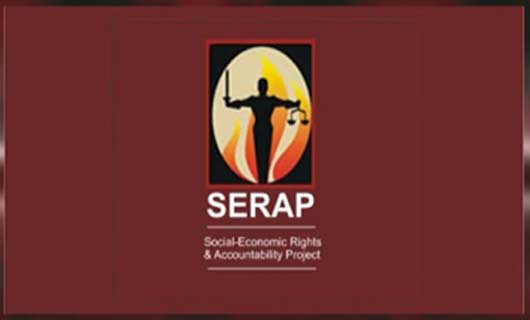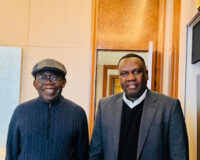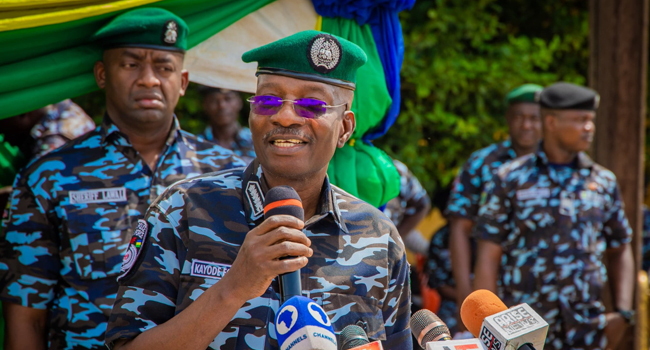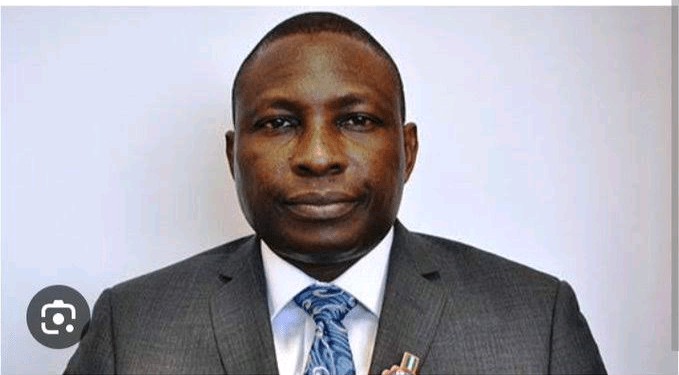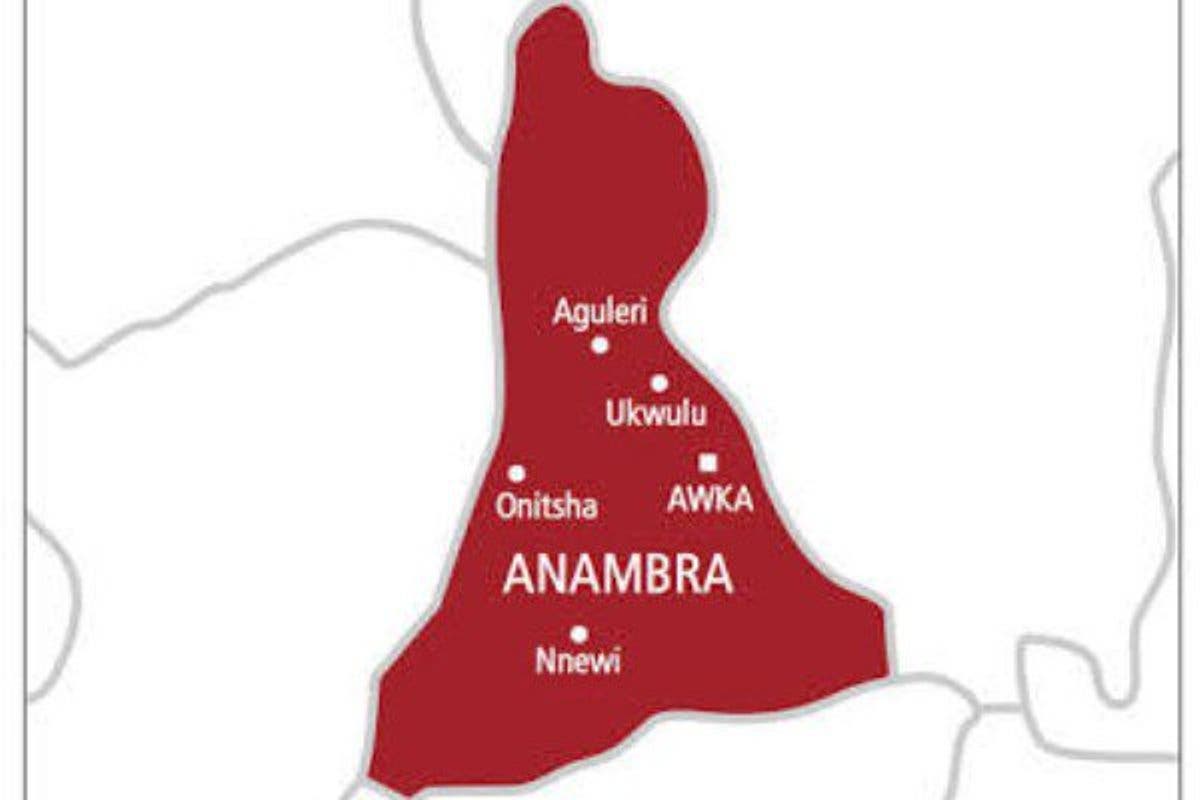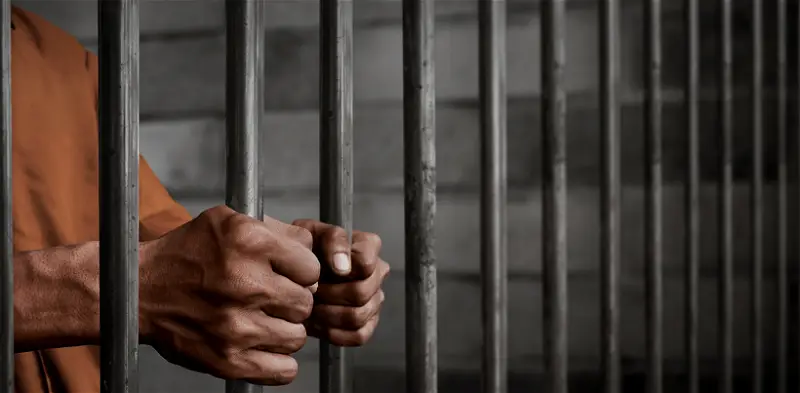Socio-Economic Rights and Accountability Project (SERAP) has urged President Muhammadu Buhari to “promptly set up a presidential panel of enquiry to thoroughly, impartially, and transparently investigate the operations of illegal oil pipelines from 2001 to date, and to widely publish the names of anyone suspected to be involved.”
SERAP urged him to “ensure the prosecution by appropriate anti-corruption agencies of anyone suspected to be responsible for the plundering of the country’s oil wealth and the full recovery of any proceeds of crime.”
SERAP also urged him to “promptly authorise the investigation of reports of the destruction of an oil bunkering vessel by security agencies and to ensure that suspected owners of the vessel are identified, named and brought to justice.”
SERAP’s letter followed the recent reports that two illegal pipelines used to steal the country’s oil wealth from Forcados Terminal, and connected to the 48-inch Trans Forcados Export Trunk line, have been uncovered.
In the open letter dated 15 October 2022 and signed by SERAP deputy director Kolawole Oluwadare, the organisation said: “Poor and socio-economically vulnerable Nigerians have continued to pay the price for the stealing of the country’s oil wealth apparently by both state and non-state actors.”
SERAP said, “Your government has a legal obligation to ensure that the country’s oil wealth is used solely for the benefit of the Nigerian people, and that the wealth does not end up in private pockets, for the sake of the present and future generations.
The letter, read in part: “Despite the country’s substantial oil wealth, successive governments have largely squandered the opportunity to use the wealth to improve the lives and well-being of ordinary Nigerians. This is a clear violation of the government’s anti-corruption and human rights obligations.”
“We would be grateful if the recommended measures are taken within 14 days of the receipt and/or publication of this letter. If we have not heard from you by then, SERAP shall take all appropriate legal actions to compel your government to comply with our request in the public interest.”
“SERAP urges you to consider referring the reports to the prosecutor of the International Criminal Court [ICC] to investigate whether the allegations of oil theft in the country amount to crimes against humanity within the jurisdiction of the ICC, and to surrender all suspected perpetrators for trial by the ICC.”
“SERAP is concerned that the illegal pipelines have been operated for many years without notice, implying a flagrant violation of constitutional and international obligations to ensure the proper, effective and efficient management of the country’s wealth and natural resources.”
“It is in the public interest to promptly investigate the discovery of the illegal pipelines, publish the names of those suspected to be involved, and ensure that they are brought to justice, and that any proceeds of crime are fully recovered.”
“Taking these steps would advance the right of Nigerians to restitution, compensation and guarantee of non-repetition and improve public confidence in the fight against corruption and related crimes, especially in the oil sector.”
“As the President and Minister of Petroleum Resources, you and your government have a legal responsibility to ensure accountability for these human rights crimes, and end the culture of impunity, which is fuelling the stealing of the country’s oil wealth”.
“The proposed presidential panel of enquiry should be headed by a retired justice of the Supreme Court or Court of Appeal, and its members should include people with proven professional record and of the highest integrity that can act impartially, independently, and transparently.”
“The plundering of the country’s oil wealth has resulted in the downward trend in revenue and increasing level of borrowing, with reports of a projected N11.30 trillion deficit budget for 2023.”
“SERAP is concerned that the unaddressed plundering of the country’s oil wealth has for many years contributed to shrinking revenue, chronic underfunding of public goods and services such as education, health, and access to safe drinking water, recurring budget deficits, growing level of borrowing, and unsustainable debt profile.”
“According to our information, security agencies recently reportedly uncovered an illegal pipeline used to steal the country’s oil wealth for nine years from Forcados Terminal.”
“Another illegal pipeline connected to the 48-inch Trans Forcados Export Trunk line, at the rear of a military security post in Burutu Local Government Area, Delta State has reportedly been discovered.”
“The discovery of the second illegal pipeline followed the recent destruction by security agents of a vessel allegedly used for crude oil theft off the Niger Delta creeks. About 58 illegal oil points have reportedly so far been discovered.”
“Section 15 subsection (5) of the Constitution requires your government to abolish all corrupt practices and abuse of power.”
“The UN Convention against Corruption and the African Union Convention on Preventing and Combating Corruption to which Nigeria is a state party obligate your government to effectively prevent and investigate acts of corruption and hold public officials and non-state actors to account for any violations.”
“Specifically, article 26 of the UN convention requires your government to ensure “effective, proportionate and dissuasive sanctions” including criminal and non-criminal sanctions, in cases of grand corruption.”
“Article 26 complements the more general requirement of article 30, paragraph 1, that sanctions must take into account the gravity of the corruption allegations.”
“According to a Nigeria Extractive Industries Transparency Initiative (NEITI) audit report, 160 million barrels of crude oil valued at $13.7 billion, was stolen in four years (2009-2012). There is also report of $17 billion debt of under-declared crude oil lifted by some international oil companies (IOCs) between 2011 and 2014.”
“According to reports, Nigeria has seen increased oil theft in recent years. The country loses 470,000 barrels of crude oil monthly amounting to $700 million to oil theft.”
“The country has reportedly lost $10 billion to crude oil theft in seven months, which is stated to be more than 50 per cent of Nigeria’s external reserves. The Chatham House, a think-tank based in the United Kingdom has noted that oil theft in Nigeria is ‘on an industrial scale.’”

